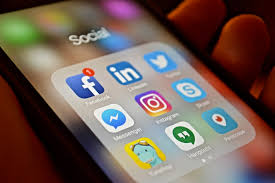
The selfie is a unique social phenomenon as it allows one to create and share pictures of themselves, often taken at angles and in locations that show the person in a flattering light. While some selfies are done for comedic purposes and are less than flattering images as a form of selfie parody, the selfie still makes a statement about societal views of body images, narcissism and sexuality.
A recent study from the American Academy of Facial Plastic Surgery suggests that the rising popularity of the selfie is also causing an increased demand in plastic surgery. The study found that one out of three plastic surgeons surveyed felt they had an increase in requests for surgical and non-surgical procedures because of the influence of self-awareness by social media. Placing one’s face under the microscope by these pictures to be judged by the person and many others as well makes one ever more critical of themselves. This is particularly true amongst young people, who are the greatest users of social media by percent, as they show their faces to friends, family and potential romantic interests and employers. Putting your best face forward has totally taken on a whole new meaning.
The selfie influence on plastic surgery parallels that of other ‘mirror’ type technologies such as FaceTime, Skype and the camera phone in general. There is no question that one has the opportunity to see themselves in greater frequency today than since the invention of the mirror (Roman times) and the instant polaroid camera. (1948) Such self-scrutiny inevitably leads to greater awareness and a desire to make changes, whether they are realistic or not.
But the selfie influence is just a very small reason for the increasing numbers of plastic surgery being requested and done. It fits into a broader change in overall societal and cultural influences. As the entire world becoming visibly connected, one’s presence on this earth is at the same time minuscule but potentially very relevant.
Dr. Barry Eppley
Indianapolis, Indiana


